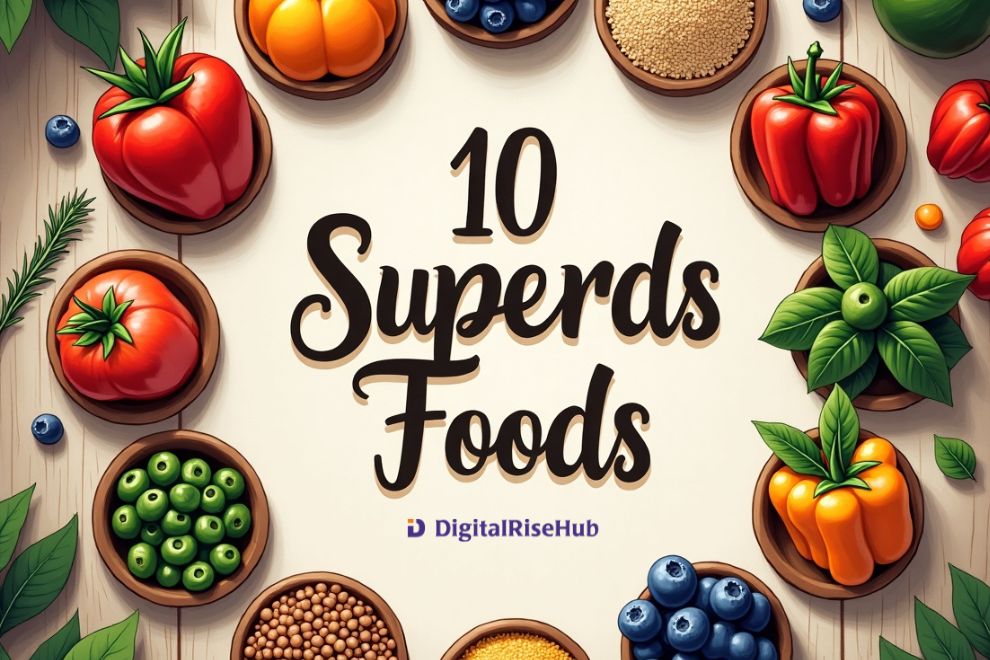When it comes to making healthy dietary choices, one of the most common debates revolves around whether veg or non-veg food is better for overall health. Both have their unique nutritional profiles and health benefits, and the decision ultimately depends on individual preferences, lifestyle, and health goals. In this article, we will explore the health benefits and drawbacks of both veg and non-veg food, helping you make an informed choice about what’s best for you.
The Benefits of Vegetarian Food
Vegetarian diets, consisting of plant-based foods like fruits, vegetables, legumes, grains, nuts, and seeds, are packed with numerous health benefits. Let’s dive into some of the advantages of incorporating more plant-based food into your diet:
1. Rich in Nutrients
Vegetarian food is naturally rich in essential nutrients such as fiber, vitamins, minerals, and antioxidants. These nutrients play a vital role in maintaining overall health, supporting immunity, and promoting digestive health. Vegetables like spinach, kale, and broccoli are excellent sources of vitamin C, iron, and calcium. Legumes like lentils and chickpeas provide high-quality plant-based protein and are rich in folate and magnesium.
2. Lower Risk of Chronic Diseases
Numerous studies have shown that vegetarians have a lower risk of developing chronic conditions such as heart disease, hypertension, type 2 diabetes, and certain cancers. The high fiber content in vegetarian diets helps to lower cholesterol levels, improve heart health, and regulate blood sugar levels. Additionally, plant-based foods are low in saturated fats, which are often found in animal-based products and can contribute to heart disease.
3. Weight Management
A vegetarian diet can help with weight management. Many plant-based foods are naturally lower in calories and fat compared to their non-vegetarian counterparts. Vegetables, whole grains, and legumes provide essential nutrients while keeping calorie intake in check. As a result, vegetarians tend to have a lower body mass index (BMI) and a reduced risk of obesity.
4. Better Digestion
Vegetarian foods are high in dietary fiber, which promotes healthy digestion and helps prevent constipation. Fiber-rich foods are also beneficial for gut health as they support the growth of beneficial gut bacteria, which aids in digestion and nutrient absorption.
5. Environmental Impact
Choosing vegetarian food can also have a positive impact on the environment. Plant-based diets require fewer resources like water and land compared to animal farming. Reducing meat consumption helps decrease greenhouse gas emissions, which contributes to mitigating climate change.
The Benefits of Non-Vegetarian Food
While vegetarian diets offer a plethora of benefits, non-vegetarian foods, which include meat, poultry, fish, and dairy products, also provide essential nutrients that are not easily found in plant-based foods. Let’s examine the benefits of non-veg food:
1. Complete Protein Source
Animal-based products are complete proteins, meaning they contain all the essential amino acids needed by the body. This makes them an excellent choice for individuals who need to build or repair muscle, such as athletes or those involved in strength training. Meat, eggs, and dairy are some of the best sources of high-quality protein.
2. Rich in Iron and Vitamin B12
Non-vegetarian foods are rich in heme iron, which is more easily absorbed by the body compared to non-heme iron found in plant-based foods. Iron is essential for producing red blood cells and preventing iron-deficiency anemia. Additionally, vitamin B12, which is crucial for nerve function and the production of red blood cells, is primarily found in animal-based products. Vegetarians and vegans may need to supplement B12 or consume fortified foods.
3. Omega-3 Fatty Acids
Certain types of fish, particularly oily fish like salmon, mackerel, and sardines, are rich in omega-3 fatty acids. Omega-3s are essential fats that support heart health, reduce inflammation, and promote brain function. While some plant-based sources of omega-3, such as flaxseeds and walnuts, exist, fish remains one of the best sources of this vital nutrient.
4. Improved Muscle Mass
Animal protein is particularly effective in supporting muscle growth and maintenance. Non-veg foods like chicken, turkey, and lean meats are high in protein, which helps build muscle mass and repair tissue. This makes non-vegetarian diets ideal for individuals focused on building strength and maintaining lean muscle mass.
5. Increased Satiety
Non-vegetarian meals tend to be more filling due to their higher protein content and fat content. Eating meat can increase satiety, meaning you feel fuller for longer, which can help prevent overeating and unnecessary snacking. This makes non-veg food beneficial for those aiming for weight control.
The Drawbacks of Vegetarian and Non-Vegetarian Diets
While both vegetarian and non-vegetarian diets have their advantages, it’s important to consider their drawbacks as well.
Drawbacks of Vegetarian Diets
- Potential Nutrient Deficiencies: Without careful planning, vegetarians may risk deficiencies in certain nutrients like vitamin B12, iron, omega-3 fatty acids, and zinc, which are commonly found in animal-based foods.
- Protein Intake: While plant-based sources like beans, lentils, and tofu provide protein, it may be more challenging for some individuals to meet their protein needs without the convenience of animal products.
Drawbacks of Non-Vegetarian Diets
- Higher Risk of Chronic Diseases: Consuming too much red meat and processed meats (like bacon, sausages, and deli meats) can increase the risk of heart disease, colorectal cancer, and other health problems due to their high content of saturated fats and preservatives.
- Environmental Concerns: Non-vegetarian diets, particularly those that rely heavily on meat, contribute to higher greenhouse gas emissions and environmental degradation due to the resources needed to raise animals.

Veg or Non-Veg—Which is Healthier?
Both vegetarian and non-vegetarian diets have their own merits, and the decision of which is healthier depends on various factors, including individual health goals, preferences, and lifestyle.
- Vegetarian diets are generally associated with a lower risk of chronic diseases, better digestion, and environmental sustainability. They are packed with essential nutrients like vitamins, minerals, and fiber, but vegetarians must ensure they are meeting their needs for certain nutrients like vitamin B12 and iron.
- Non-vegetarian diets provide complete proteins, high-quality omega-3 fatty acids, and are excellent sources of iron and vitamin B12. However, it’s important to moderate the consumption of red meat and processed foods to avoid health risks associated with excessive meat intake.
The healthiest approach might be a balanced diet that incorporates a variety of both plant-based and animal-based foods, ensuring that you are getting a wide range of nutrients while minimizing any potential drawbacks. For optimal health, aim to consume lean meats, incorporate more fish into your diet, and include plenty of fruits, vegetables, legumes, and whole grains for balance.
Ultimately, both veg and non-veg foods can form part of a healthy diet when chosen wisely. The key lies in moderation, variety, and making conscious food choices based on your health needs and goals.


